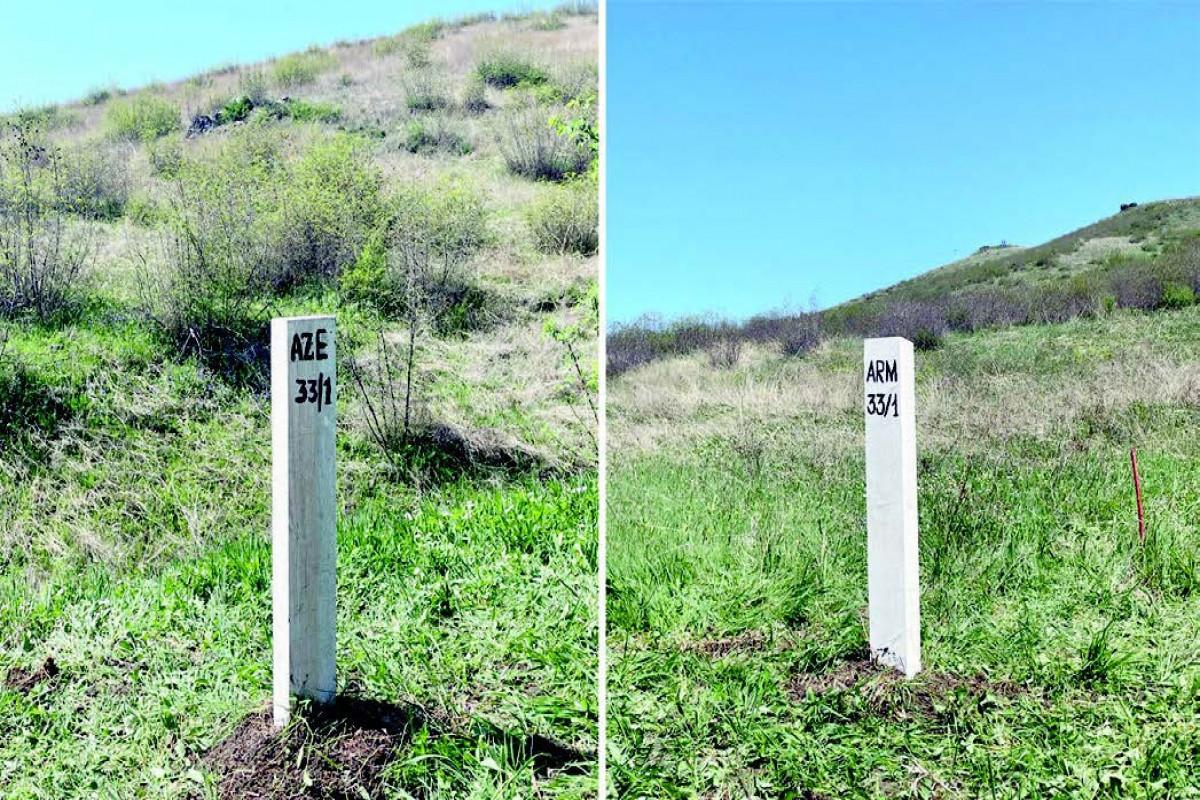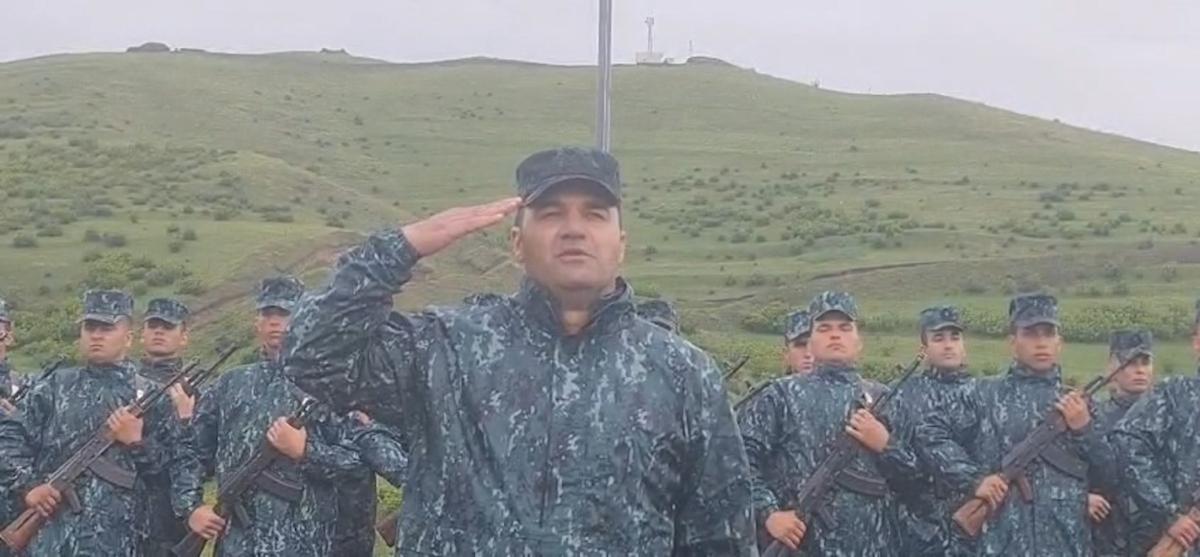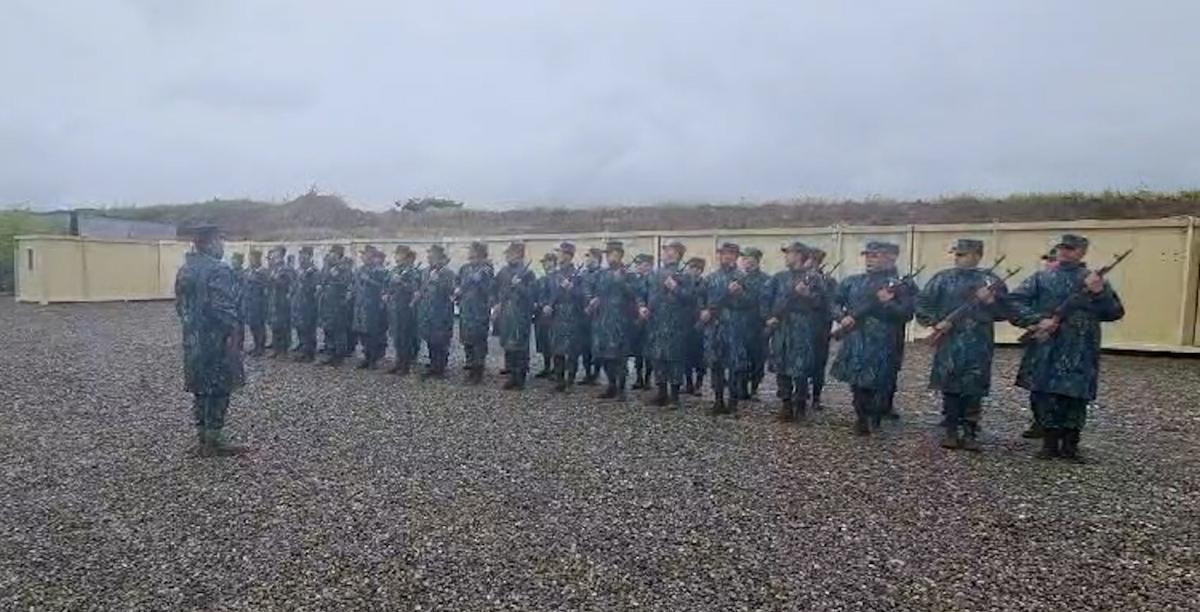Amid regional tension & domestic opposition, Armenia returns occupied villages to Azerbaijan after 30 years Historic handover sets stage for peace talks
The peaceful handover of the villages of Baganis Ayrim, Ashagi Askipara, Kheyrimli, and Gizilhajili in the western Azerbaijani Gazakh District marks a significant milestone in the Armenia-Azerbaijan border delimitation process. Under Armenian occupation for 30 years, these villages were officially returned to Azerbaijan, signifying a momentous event in the history of the South Caucasus region.
The implementation of the agreement, reached on April 19, 2024, by the Azerbaijani-Armenian border delimitation commissions, determined a 12.7 km long border line. The Azerbaijani State Border Service has since taken control of these territories, heralding a new era of mutual recognition and respect for state borders between the two nations.

This event is historically significant as it represents the first mutually recognized delimitation of the state border between Armenia and Azerbaijan since the collapse of the Soviet Union in 1991. The return of the four villages without conflict underscores a pivotal step towards ensuring Azerbaijan's sovereignty and territorial integrity. The peaceful nature of the handover illustrates the potential for future diplomatic resolutions of undelimited segments of the border and sets a precedent for further negotiations.
The success of the delimitation process, conducted without intermediaries, highlights the effectiveness of official Baku's proposals for direct peace talks and border negotiations. Azerbaijan's logical and fair approach has paved the way for this agreement, fostering an atmosphere of trust between the two countries. This achievement is a testament to the strategic and diplomatic initiatives led by President Ilham Aliyev, whose leadership has significantly shaped Azerbaijan's military and diplomatic progress.
Earlier this year, President Aliyev reiterated his stance on the return of Gazakh's villages, emphasizing their unconditional return to Azerbaijan. His clear, consecutive, and comprehensive approach to the peace treaty and delimitation process has proven effective, as evidenced by the successful return of the four villages. This development aligns with President Ilham Aliyev's consistent emphasis on international law, justice, and interstate relations, which have become the cornerstone of Azerbaijan's foreign policy.
Geopolitical dynamics
The peaceful return of the villages is a continuation of the victories achieved during Azerbaijan's 44-day Patriotic War, the September 2022 battles, and the anti-terror operations in Karabakh in September 2023. These events have demonstrated Azerbaijan's unwavering commitment to reclaiming its territories and have significantly altered the regional dynamics.

Looking ahead, the question remains whether the delimitation and demarcation process will extend to other segments of the nearly 1,000-km-long border, including Nakhchivan. The current Armenian government appears determined to advance this process, aiming for a peace agreement with Azerbaijan by the time Baku hosts COP29 in November 2024. This optimistic outlook, however, is juxtaposed with the Armenian opposition's protests against the border delimitation process, reflecting internal political challenges.
The Armenian government's constructive approach in recent agreements has been crucial in advancing the delimitation process. This shift did not occur in a vacuum but resulted from Azerbaijan's steadfast reliance on international law and justice. Yerevan's recognition of the legitimacy and substance of Azerbaijan's demands, based on relevant documents and agreements, has been a key factor in this progress. Moreover, Armenia's understanding that non-compliance with Azerbaijan's legitimate demands could lead to other means of enforcement has likely influenced its cooperative stance.
For the peace agreement and the delimitation process to succeed, the Armenian government must fulfill its obligations, such as opening the Zangazur corridor and removing constitutional clauses with territorial claims against Azerbaijan and Türkiye. These steps would significantly contribute to improving bilateral relations and fostering a stable and prosperous South Caucasus region.
Conclusion
The peaceful return of the four villages in Gazakh represents a crucial step towards strengthening Azerbaijan's sovereignty and territorial integrity. It sets a positive precedent for future negotiations and highlights the potential for a peaceful resolution to long-standing conflicts in the region.

The continued progress of the delimitation and demarcation process, coupled with the successful signing of a peace treaty, would mark a new chapter in Armenia-Azerbaijan relations, fostering stability and cooperation in the South Caucasus. As the world watches these developments, the hope remains that both nations will continue to pursue diplomatic solutions, ensuring a peaceful and prosperous future for the region.








